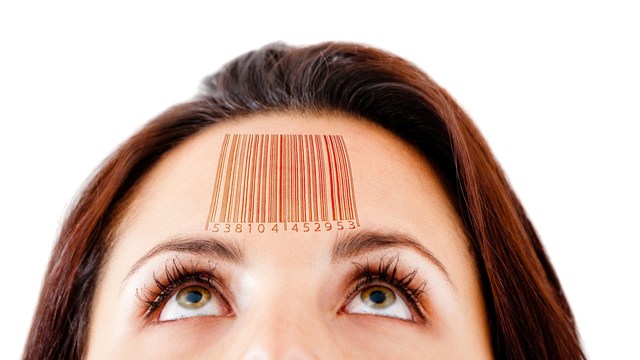 Andres Rodriguez/PhotoSpin
Andres Rodriguez/PhotoSpin
The idea of a drug curing any serious ailment within hours almost seems like magic. Yet a few researchers have found that the club drug “Special K,” officially recognized as an FDA-approved anesthetic called ketamine, can effectively relieve many mental illness symptoms within hours.
According to NPR articles, a psychiatrist and researcher Demitri Papolos has found ketamine to be a helpful treatment for several children and adolescents who suffer from bipolar disorder and other mental health issues.
Papolos has specifically focused on children who demonstrate a “fear of harm” profile, which includes characteristics such as sleep disturbances like nightmares, aggressive reactions to others trying to control them, and body temperatures rising easily (overheating).
However, other research suggests that the drug ketamine can also help treat major depression in cases where antidepressants and other treatments don’t work.
Another NPR article does mention that it’s not realistic to treat all mental illnesses such as depression and bipolar disorder with ketamine, since it can have some extreme side effects like hallucinations, memory issues and out-of-body experiences. The drug can also be addictive and cause long-term mental and physical issues, depending on the individual.
Some researchers are looking at other drugs similar to ketamine, such as riluzole and scopolamine, for everyday treatment of certain mental illnesses, according to NPR. New antidepressants could be developed based on all three main drugs targeting glutamate, which is a chemical in the brain.
So is ketamine an option currently if you suffer from major depression, bipoloar disorder or anther mental illness? Experts weigh the potential benefits of ketamine against the side effects.
Barry Friedberg, a certified anesthesiologist, said in an email that ketamine is a decent drug for surgery, but it can cause side effects like dysphoria, hallucinations and flashbacks for some people.
He suggested coupling ketamine with another drug called benzodiazepine, such as Valium, to help protect the brain, for people who are receiving treatment for mental health conditions.
Friedberg added that ketamine is accessible and inexpensive, since it can be found in a generic form, but it is unpredictable.
There are a few other treatment options for people with treatment-resistant forms of mental illnesses, such as transcranial magnetic stimulation (TMS) and deep brain stimulation (DBS). Unfortunately, these other treatments are either too expensive for most people, or they’re still in the experimental phase.
Jan Hamilton, a psychiatric nurse practitioner in Arizona, said in an email that ketamine is not FDA-approved yet for depression, so it is not as accessible in that sense.
Studies have generally used intravenous ketamine, which needs to be taken every couple days in a hospital or clinic setting. This can add up to a couple thousand dollars per dose, she said.
“It does show promise as an antidepressant, and there are some drug studies going on to develop similar medications for depression that would not have the negative side effect profile,” Hamilton added.
Gretchen Kubacky, a health psychologist in California, said in an email that ketamine is more often used in emergency room settings, and can help reduce suicidality in around half an hour.
She said that one doctor she spoke with informed her that topical versions of ketamine can work well for people who have “persistent depression.”
“It is used sometimes before and/or in accompaniment with ECT [electroconvulsive therapy], because it works faster than ECT, and of course it is also anesthetic,” Kubacky said. “A physician friend of mine credits the combined ketamine/ECT treatment with saving her life.”
She said one of her patients is taking a syrup form of ketamine for a chronic pain condition, and it’s been helping her symptoms.
Kubacky said some issues with accessibility of ketamine include the expense of syrup and topical forms of ketamine. Some insurances won’t cover it. Also, some doctors won’t prescribe it for an off-label use.
“I’m fascinated with it, and think it holds great potential for offering relief to treatment-resistant patients,” she said.
Besides ketamine, she suggested considering transcranial magnetic stimulation and dialectical behavior therapy for treatment-resistant depression.
Sources:
Hamilton, Jon. NPR. ‘I Wanted to Live’: New Depression Drugs Offer Hope For Toughest Cases. Web. April 3, 2013.
http://www.npr.org/blogs/health/2012/01/31/146096540/i-wanted-to-live-new-depression-drugs-offer-hope-for-toughest-cases
Hamilton, Jon. NPR. How An Unlikely Drug Helps Some Children Consumed By Fear. Web. April 3, 2013.
http://www.npr.org/blogs/health/2013/03/25/174928768/how-an-unlikely-drug-helps-some-children-consumed-by-fear
Friedberg, Barry. Email interview. April 2, 2013.
Hamilton, Jan. Email interview. April 2, 2013.
Kubacky, Gretchen. Email interview. April 2, 2013.
Reviewed April 4, 2013
by Michele Blacksberg RN
Edited by Jody Smith




